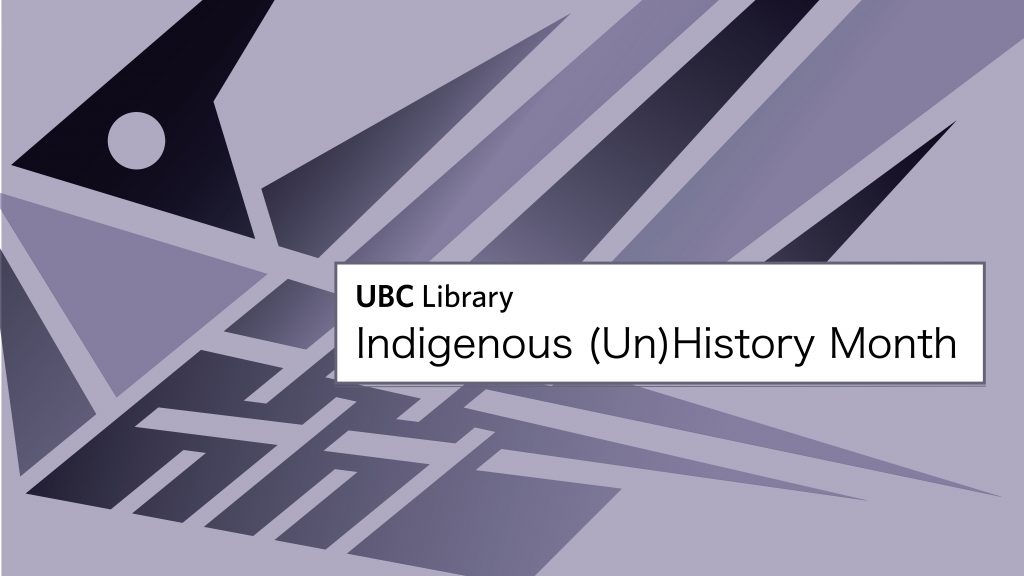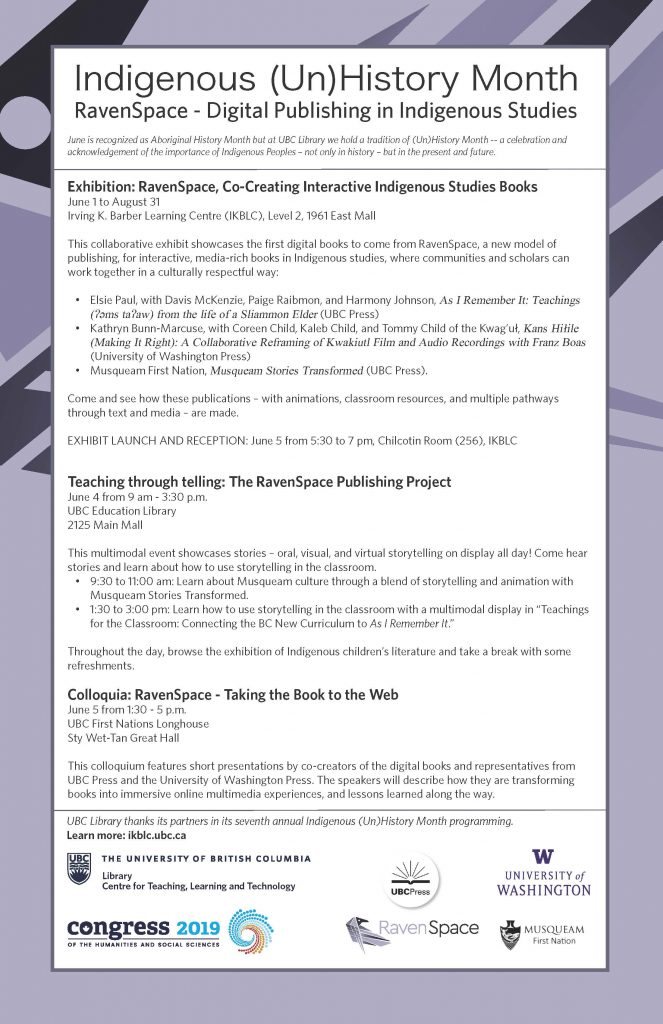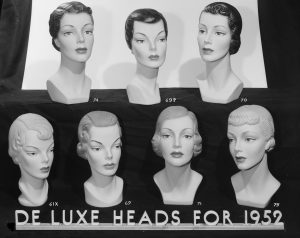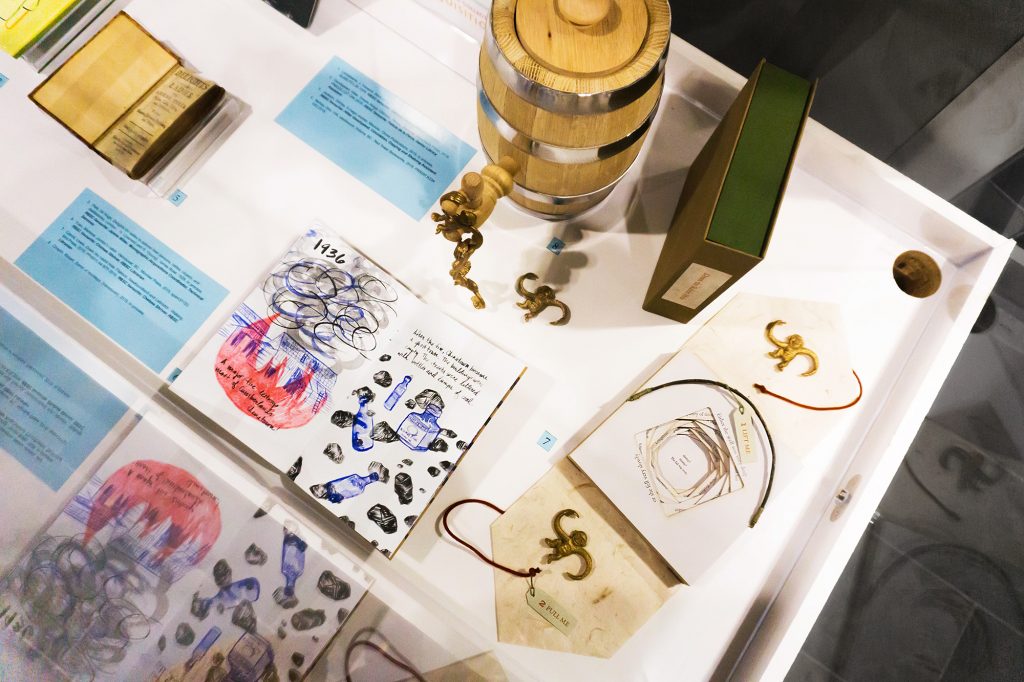In September 2006, the Irving K. Barber Learning Centre at the University of British Columbia Library announced the BC History Digitization Program. The focus of the program is to promote increased access to British Columbia’s historical resources, including providing matching funds to undertake digitization projects that will result in free online access to our unique provincial historical material. Below is a list of successful applicants for 2019.
NOCA Cream Collector1927 to 1977 Digitization
BC Dairy Historical Society
$7,000
The NOCA Cream CollectorMagazine Digitization project will see the digital scanning of about 10,586 pages of the NOCA Cream Collectormagazine into searchable downloadable digital files. This project will complement theButter-FatMagazine which was digitized in 2014 and is now hosted http://www.bcdairyhistory.ca/. These digital publications provide researchers with access to BC Dairy Historical materials from the Okanagan Shuswap region of BC.
The digital editions of the Cream Collectormagazine will be hosted on the website of the BC Dairy Historical Society www.bcdairyhistory.cafor viewing by the public without charge.
Tax and Collector Roll Digitization Project
City of Maple Ridge
$7,500
The Tax Assessment and Collector Roll Digitization project will involve BC Records Management digitizing the tax assessment and collector rolls in the city’s possession from 1875 – 1945, a total of 32 boxes (approximately 7,500 large format sheets). The original documents will then be stored in their archival facility and the digital files will be available on the City’s website.
Co-op Radio fonds audio-visual records digitization
City of Vancouver Archives
$15,000
The Co-op Radio fonds audio-visual records digitization project will digitize 585 audio tapes containing documentation of spoken word radio programs that were produced by Vancouver Co-op Radio from the mid-1970s to late 1990s.
Landscapes and Landmarks – Photograph Digitisation Initiative
Creston & District Historical & Museum Society
$6,435
The Creston Museum intends to digitise approximately 350 photographs that document the landscapes of the Creston Valley prior to 1935 and 1947.
Goals:
- Make a unique resource widely accessible to public researchers and increase awareness of the Museum’s collections;
- Reduce burden on our manager, to whom falls the vast majority of requests for access to these photographs;
- Bring physically scattered photographs together digitally into a single online resource;
- Gain important experience in digitising collections by working in partnership with an established model and partner, Digitised Okanagan History (DOH).
Association of College and University Employees Local 1 Digital Collection
CUPE 2950 – Clerical, Library and Theatre Workers at the University of British Columbia
$14,400
Year 2 of the AUCE project will continue to digitize archival materials and publications from the Association of University and College Employees (AUCE) fonds held by UBC Library’s Rare Books and Special Collections, and make them available online in Open Collections. Our first year of the project will see 12,000 items digitized with BCHDP funding; we intend to finish the project in year 2 by digitizing the remaining eligible items.
LIVE Biennale of Performance Art: The Early Years
grunt gallery (Visible Art Society)
$14,656
grunt gallery will digitize and make available online our collection of photographic, text, and video material documenting the LIVE Biennale of Performance Art, a series founded and produced by grunt from 1999 to 2005.
Vancouver Historical Costume Digitization Project, Phase 3
Museum of Vancouver
$15,000
The Museum of Vancouver holds a significant collection of Vancouver related historical costumes recognized for its quality, size, and breadth of styles and periods represented. MOV has digitized two thirds of the costume collection of outerwear through previous BC History Digitization grants. In Phase 3, MOV will digitize the final third of the outerwear collection (approximately 900 pieces), thereby completing the digitization of this group of artefacts and increasing the public’s access to this popular collection.
Families on the Coast: K&M Boat Works and the Oikawa Island
Nikkei National Museum
$11,410
This digitization project will focus on the Madokoro and Oikawa families who individually made significant contributions to BC’s fishing industry in the early 1900s, survived the unjust treatment during the Second World War, and returned to the coast in the 1950s. In particular, Sajiemon Kuramoto and Jitsuji Madokoro operated the successful K&M Boat Works. In 1906, Jinzaburo Oikawa led skilled fishermen from Japan to Oikawa Island aboard the Suian Maru. The project will digitize 917 photographs, 170 artefacts, and selected high-priority textual records from the total 29.4 cm of textual material, including but not limited to 486 letters and postcards.
Upper Fraser River Forest History Resources: Access & Outreach Project
Northern BC Archives & Special Collections, University of Northern British Columbia
$2,130
The Upper Fraser River Forest History Resources: Access & Outreach Project will create digital access to 93 unique audio recordings and related transcripts that document the rise, consolidation and demise of a series of forestry based settlements along the Upper Fraser River within Northeast BC c. 1915 – c. 2000. These resources document this region’s forest history, forest industry operations history and that of the created sawmill communities, and will be accessible for academic research and for public use. Activities include creating of digital files, uploading materials for online access, and promoting access to these resources for broader use.
Vancouver Japanese United Church Digitization Project
Pacific Mountain Regional Archives, The United Church of Canada
$5,655
This project will digitize 765 photographs and up to 50 selected textual records associated with the Japanese Methodist and United Church missions in British Columbia. Dates cover the years 1897 to 2018; the bulk of the materials dates from 1920 to 1955. The intent of the project is also to build capacity for future digitization of records relating Japanese-Canadian and Chinese-Canadian communities of faith in B.C.
Digitizing Radiofreerainforest Audio Recordings
Simon Fraser English Department, Simon Fraser University
$9,805
This project will digitize audio recordings from the Gerry Gilbert fonds in SFU Special Collections’ Contemporary Literature Collection. Gilbert was a Vancouver-based poet and performance artist. This collection of 261 cassette tapes and 11 reel-to-reel recordings features interviews, readings, and literary discussions from the Gilbert-hosted Radiofreerainforest show that aired on Vancouver CFRO from spring 1985-late 1990s. This project is part of a larger effort to collaborate cross-institutionally to make audio collections more accessible.
Grace McCarthy Scrapbooks
Simon Fraser University Library, Simon Fraser University
$12,732
The Grace McCarthy Scrapbooks project will digitize a collection of 88 scrapbooks compiled by Grace McCarthy, the Social Credit MLA who became cabinet minister and deputy premier. These scrapbooks include photographs, correspondence, clippings, press releases, and other ephemera dating from 1960 – 1991 and provide a snapshot of her political career and contributions to British Columbia’s political, cultural, and economic development. Key accomplishments that changed the landscape of Vancouver included bringing Expo ’86 to Vancouver, establishing SkyTrain as a rapid transit system, driving the construction of the Vancouver Trade & Convention Centre, and securing the lighting of the Lions Gate Bridge.
Punjabi PatrikaDigitization Project
The Reach Gallery Museum Abbotsford
$4,063
The Punjabi Patrika, published in Abbotsford, BC, is one of only two bi-lingual, Punjabi/English newspapers published in Canada and includes unique perspectives into BC’s South Asian community. An archive of the the Patrika was recently donated to The Reach by owner/publisher Andy Sidhu. The Reach is already the steward of other major newspapers from this region, including those of the Abbotsford Post (1910 – 1924); A, S & M/Abbotsford News (1922 – present) and the Abbotsford Times (1991 – 2008). The Patrika archive enriches The Reach’s archival holdings significantly, in that it represents the first local news publication with a specific cultural perspective.
Nelson Daily NewsDigitization Project – Phase 1
Touchstones Nelson: Museum of Art and History
$7,766
The project is to digitize the first 15 years of the Nelson Daily Newsnewspaper from April 1902 to 1917. 60 microfilm Master reels of the newspaper will be loaned from BC Archives. The information on these reels will be digitally scanned by the UBC Library Digitization Centre. The digital collection will be hosted on the UBC Historical Newspapers Open Collections website.
Digitization of the Victoria Daily Times newspaper: 1888 – 1940
University of Victoria Libraries, University of Victoria
$15,000
Published in Victoria, B.C., The Victoria Daily Timeswas the leading rival newspaper to the Daily Colonist in the colonies of Vancouver Island and British Columbia. Alongside their competitors, the Daily Times covered many of the same stories, but sometimes with a radically different political and socio-economic perspective.
The University of Victoria Libraries has already digitized the Daily Colonist newspaper from 1858 – 1980. Digitizing reels from the Daily Times would not only significantly augment and enhance our existing digital newspaper collection, but create further impact by making additional historical resource material available online and publicly available for comparative study and research.
Digitizing the Nanaimo Daily Free Press(1874 – 1926): Part II
Vancouver Island University Library, Vancouver Island University
$10,000
VIU Library proposes to continue part of its ongoing 2018-2019 BCHDP-funded project, digitizing the Nanaimo Daily Free Press(1874-1928). The scope and nature of this digitization work has revealed itself to be a multi-year project for the remaining 48 reels of microfilm.
VHEC Newsletter Digitization Project
Vancouver Holocaust Education Centre
$1,449
The Zachor newsletter of the Vancouver Holocaust Education Centre, and the Vancouver Holocaust Education Society newsletter that came before it, publishes unique writing from Holocaust survivors, their families, Centre staff as well as community members, including BC teachers and students. The newsletter includes articles about commemorative events, collection highlights, educational programs and exhibitions developed by the VHEC. Zachor is a foundational publication about Holocaust commemoration and education in British Columbia. At present, issues from 2004 to 2018 are available on our website. The VHEC would like to digitize 60 issues published from 1990-2004, to create a complete digital record of the publication.



 To kick off 2019, UBC’s Music Art and Architecture Library and Rare Books and Special Collections are celebrating the year that was with a selection of 2018 new acquisitions.
To kick off 2019, UBC’s Music Art and Architecture Library and Rare Books and Special Collections are celebrating the year that was with a selection of 2018 new acquisitions.